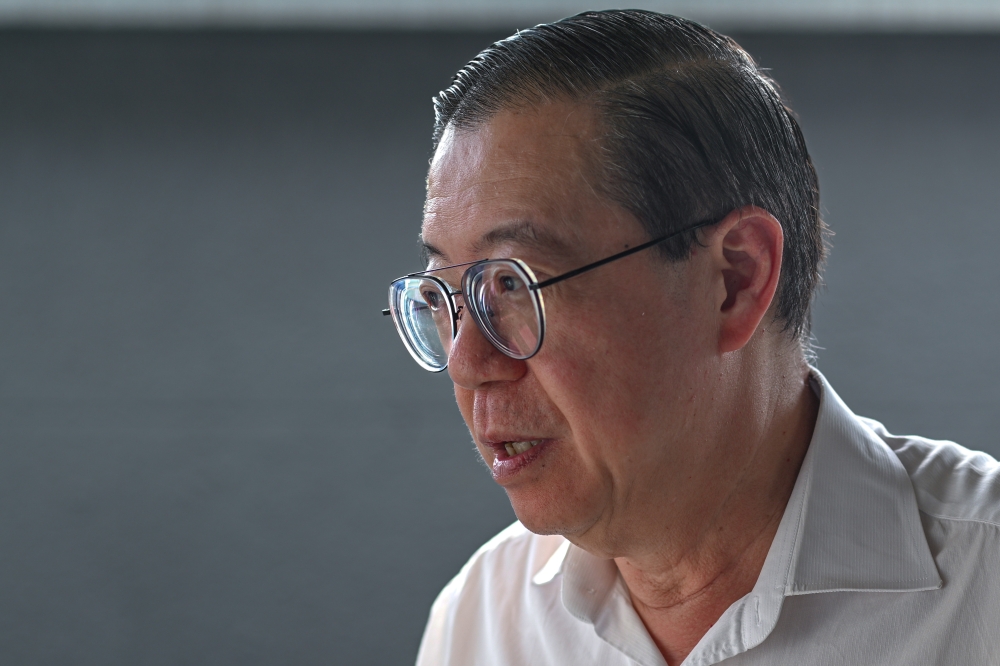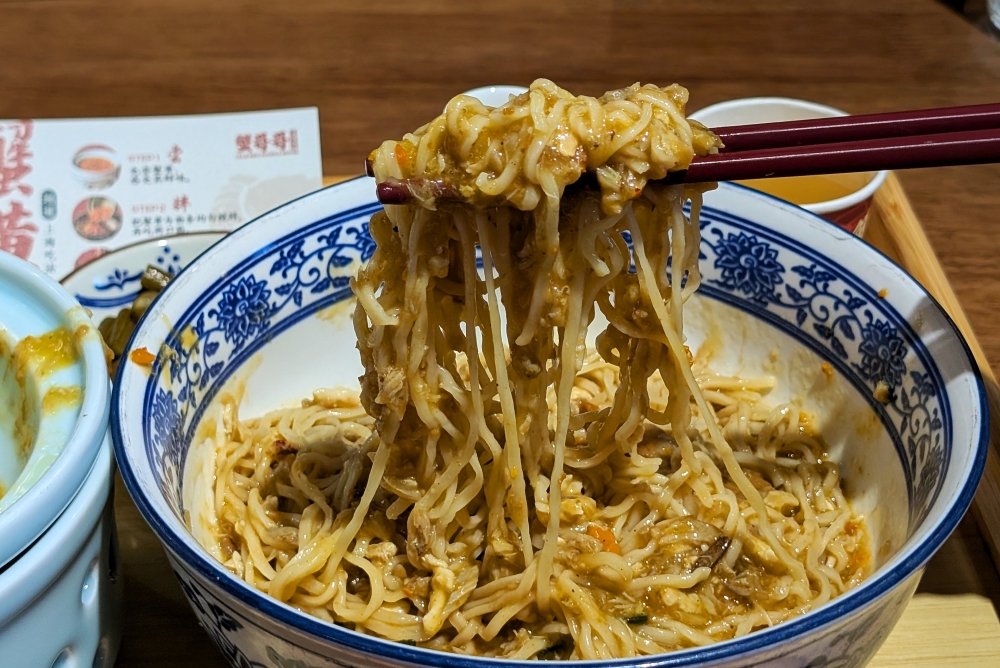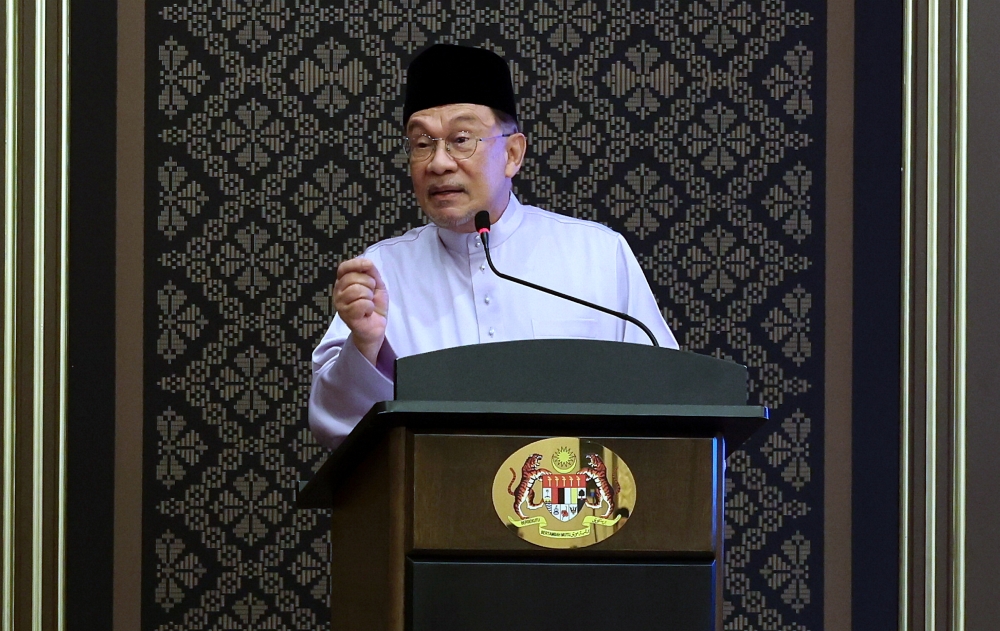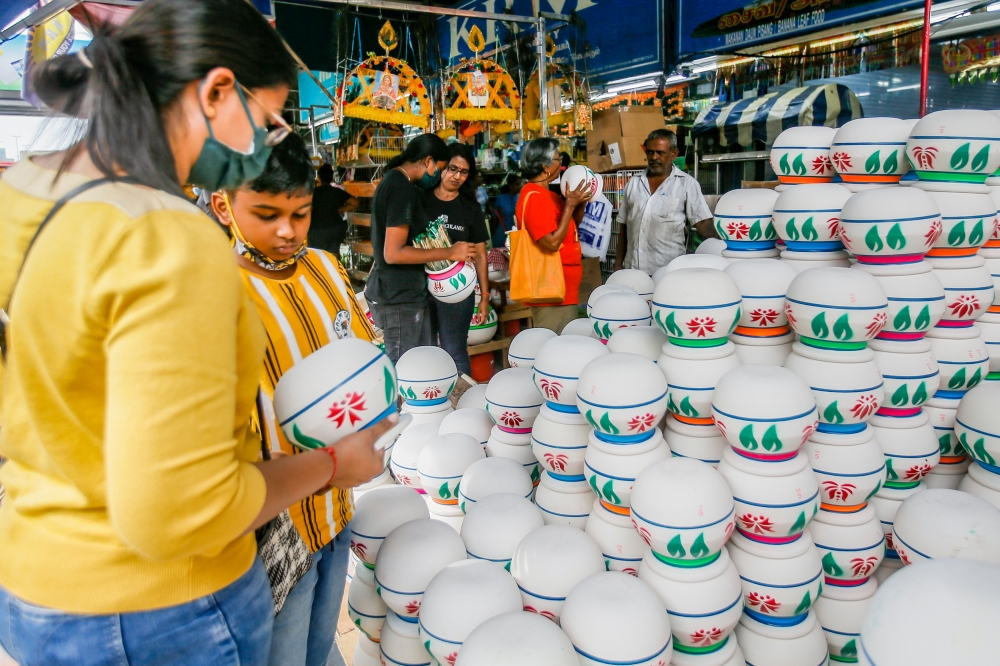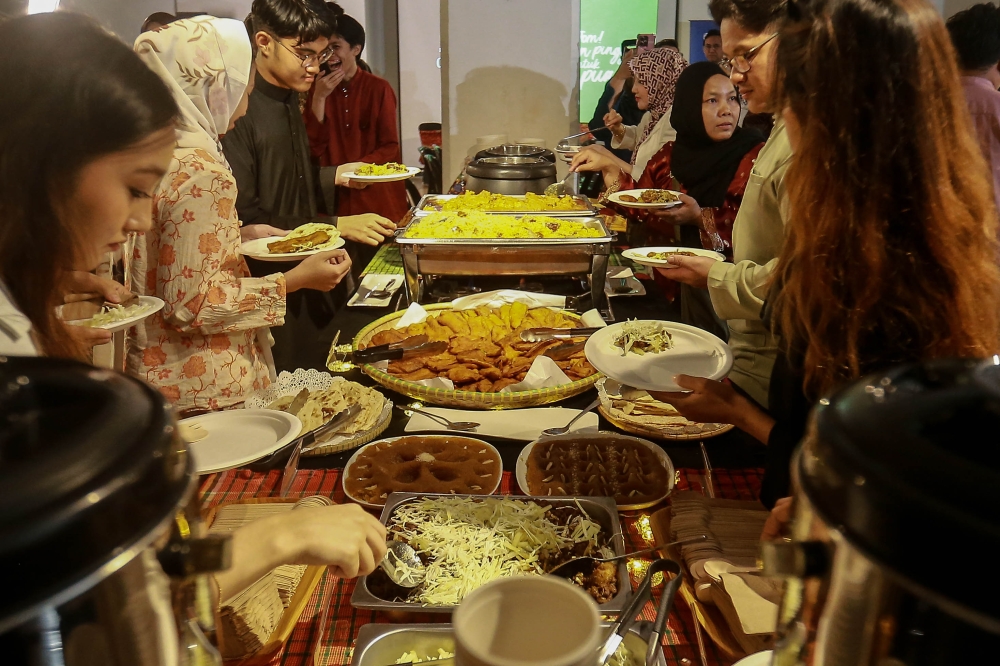KUALA LUMPUR, Jan 14 — For the last 45 years, Saraswathy A. Sundura Raju has never missed celebrating the Pongal festival, which she considers a harbinger of the upcoming year.
Saraswathy, 63, who runs a traditional Indian floral shop at Little India, Brickfields, ushers Pongal by boiling rice with milk and jaggery, praying for a prosperous year.
She said the age-old Tamil adage, “Thai piranthal vazhi pirakkum”, which means the dawn of Thai month paves the way for new opportunities, has proven to be apt in her life.
“The years when the pongal (sweet rice) boils and overflows well have always been prosperous.
“And, the years when the pongal did not pan out well were challenging for my family.
“So, every year, I start boiling the milk with a prayer and so far, the pongal has always turned out well.
“I religiously followed this ritual since I got married 45 years ago and I advise my children to do the same,” she told Malay Mail.
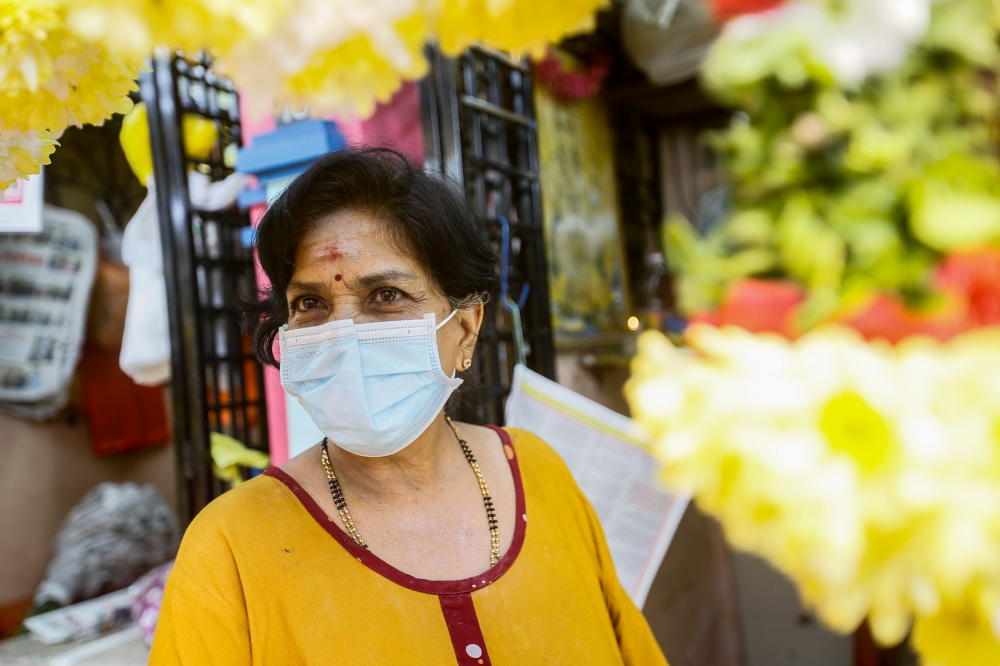
Saraswathy is expecting a busy weekend as most Hindus will throng Brickfields to buy fresh flowers and garlands for Pongal that falls tomorrow (January 15) this year.
Celebrated during the Thai month (the tenth month in Tamil calendar), the four-day-long Pongal festival marks the start of the harvest season in the southern region of India.
Traditionally, the celebration starts on the eve of Pongal with the Bhogi festival — dedicated to the rain god Indra — where old items like clothes are discarded in a bonfire.
On Pongal day, rice is cooked with milk and jaggery in a claypot, decorated with turmeric plant and flanked by sugarcanes, using firewood in the front yard.
On the second day, cows are revered for their contributions to the harvest (Maatu Pongal) and the following day, unmarried girls wishing for a blissful marital life offer their prayers (Kaanum Pongal).
In northern India, Pongal is celebrated as Makar Sankranti, which marks the Sun’s transition into the Capricorn (Makar) zodiac signs and is ushered in with kite-flying competitions.
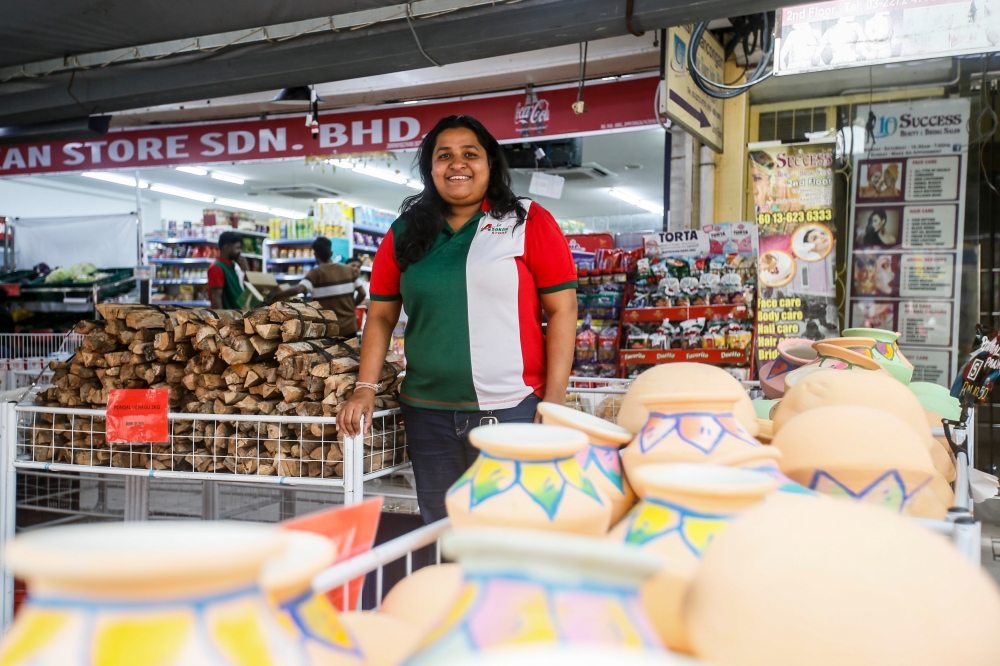
Asokan Stores general manager Mithra Thuraisingam said many Hindus still prefer to celebrate Pongal traditionally by cooking the sweet rice with claypot and firewood.
“Most families still prefer to use claypots because the prices are more affordable now,” she said.
In fact, KRM Cash & Carry purchasing department’s Haridas Selvam said the local Indian community in Malaysia are more fond of using claypot for Pongal compared to those in Tamil Nadu, India.
“In Tamil Nadu, the females usually prefer to boil the rice in brass pots that they bring to their in-laws’ households after marriage and re-use it for every Pongal.
“The Tamil community here are more enthusiastic to preserve the cultural way of celebrating the festival using claypot,” he said.
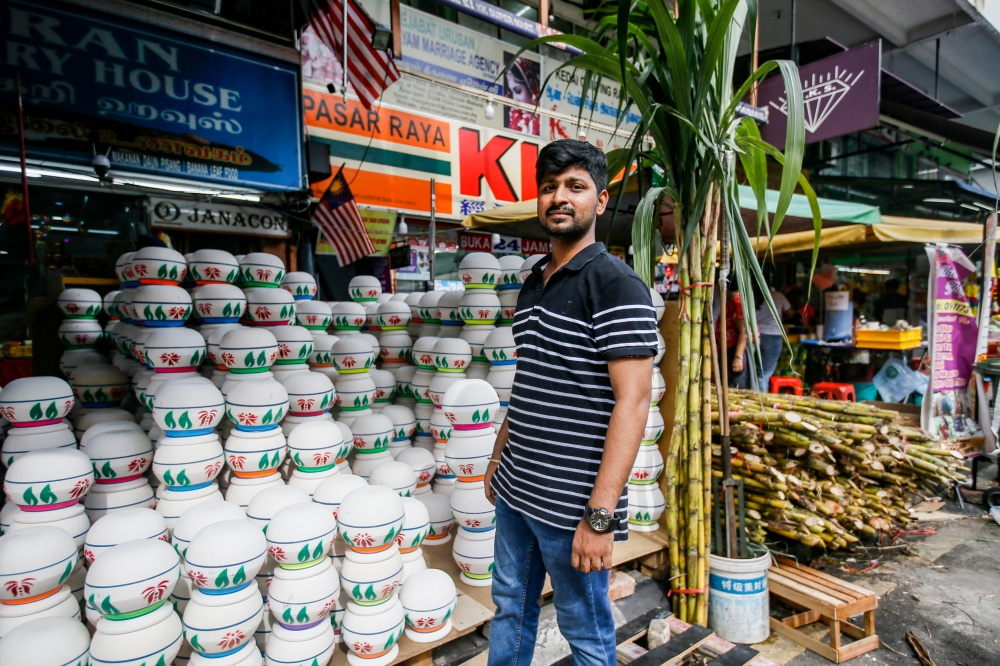
Haridas said the Pongal festival was intended to support the livelihoods of farmers and pot-makers, especially since the Thai month usually brings the best sugarcane and turmeric yields.
“The sugarcane plant grows taller at every node, not allowing itself to be hampered by challenges.
“So, putting sugarcanes up on Pongal reminds us to always rise above our challenges,” Haridas said.


